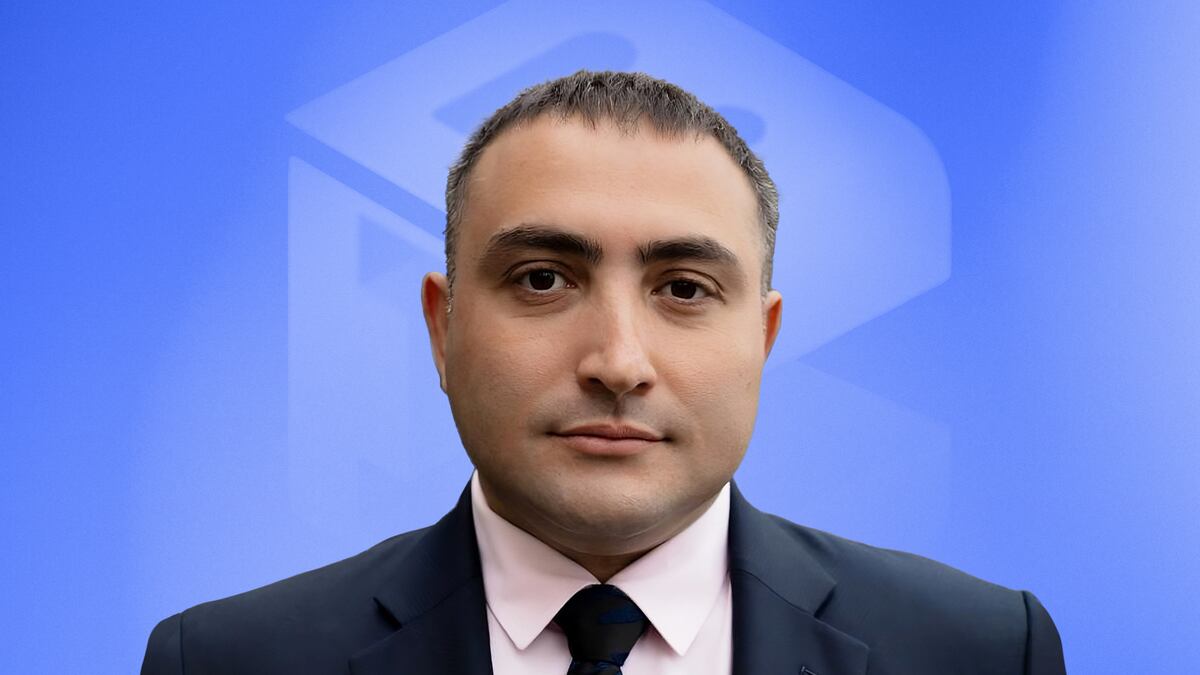Mete Al is a seasoned speaker, mentor, analyst, investor, and advisor specializing in strategy, business, and technology development within the cryptocurrency and blockchain space. As the Co-founder of ICB Labs, he plays a pivotal role in supporting enterprise organizations in their digital transformation journeys, with a strong focus on blockchain technology, tokens, and cryptocurrencies.
Mete brings deep expertise in Blockchain, Stablecoins, and Scrum methodologies, and is dedicated to helping others navigate and understand the dynamic world of cryptocurrency and the opportunities it presents.
During a conversation at TOKEN2049 in Singapore, one of the year’s largest Web3 gatherings, we spoke with Mete Al about the intersection of education and Web3, creating a safe metaverse for children, and the future of learning.
Mete Al is a Project Lead at ICB Labs, a project building the next generation of education on the blockchain. The core mission is to create a secure, accessible, and equal educational platform for students worldwide, moving beyond the traditional crypto user base.
The vision was born from identifying a significant education gap in the market and recognizing the fundamentally different way the next generation interacts with technology. ICB Labs is a holistic ecosystem built on its own EVM-compatible blockchain, complete with a metaverse, an “access NFT” system, and a native token, all of which were created in partnership with academic institutions and NGOs.
Read more about ICB Labs’ unique ecosystem in the interview below.
You’ve consolidated projects like ICB Network, ICB Verse, and KYC NFT under ICB Labs. What trade-offs did you wrestle with in bringing them all under one umbrella?
Actually, it was never about trade-offs; it has always been about realizing the dream of creating a unified, cohesive project. We started with the idea of a blockchain because we identified a major gap in education within the crypto market.
Then, during the pandemic, we noticed how much the next generation has evolved and adapted to change. They are different from us; their behavior around the classroom has changed, and they use tablets and AI for everything. This sparked the idea to develop a novel type of education based on blockchain and the metaverse. So, we intentionally built our own ecosystem, which includes access to NFTs, a native token for gas fees, and a metaverse, to offer services to kids at various levels.
Which domain, between AI, metaverse, and education, do you believe will drive the most adoption for ICB in the next 3-5 years?
The AI and metaverse are the future. Over the next five years, we will live with them. It’s like Bitcoin in its early days; those who got in back then knew it was the future. Our goal is to use this future to solve a problem. We need to provide the same quality of education to people everywhere around the world. It’s about equality.
Imagine students working with GPTs right now. They can ask questions that their professors cannot answer. In five years, what kinds of problems will arise with Generation Z and Alpha and the professors we trust? This is the next chapter of life. In five years, we will be living in the metaverse.
Your target audience includes children and students. How do you plan to reach them and bring them into your ecosystem?
Most crypto projects focus on traders, but we are different. We work directly with academic institutions and universities worldwide. We are in close collaboration with NGOs, like the World Changers group, and universities in the UAE, Romania, and Hong Kong. Our NFTs are “access NFTs,” not speculative art you can sell. In our metaverse, you don’t buy land; instead, you access different areas, such as academies and virtual classrooms. We go to where the students are.
ICB Labs aims to replace global credential systems via verifiable credentials/NFTs and decentralized identity. How are you navigating regulatory or privacy concerns in different jurisdictions as you roll that out?
Our NFT-based identity system primarily focuses on age verification. This is crucial because we work with children of various ages. Our KYC NFT token is designed to create a secure environment. For users under 18, parental permission and initial KYC are required. This helps us establish separate, age-appropriate areas in our metaverse.
For example, users over 18 are not allowed to enter spaces designed for users under 18. People who don’t complete KYC can still access the metaverse, but only with view-only rights and without the ability to interact with others. This is how we maintain the safety of the platform.
In building your own Layer-1 chain with ICBX, where have you faced the harshest technical or scalability challenges so far, and how are you addressing them?
We understood from the start that our use cases would be demanding. That’s why we decided to build our own EVM-compatible blockchain. It’s very fast for transactions, and we have the flexibility to scale it as we grow. We can add more validators and RPCs to improve the blockchain’s speed and handle increased activity. Naturally, like any blockchain, it will require future upgrades, but we designed it with scalability in mind.
Tell us about the Talent Hub. What is its purpose, and who are you partnering with to build it?
The Talent Hub is a platform where students can develop and refine their ideas and concepts. They can bring an idea, and our AI agent will assist them in creating a business plan, a marketing strategy, and even managing their social media. Once the project is ready, another AI agent will review it, and if it’s viable, we will assist them in tokenizing it through an NFT or a crypto token.
We can then help sell those assets to fund their idea, and we take a 5% share. It’s an incubator for the next generation. We are already in talks with major players, such as AWS and Vecturis Capital, to have them act as accelerators within the Talent Hub.


